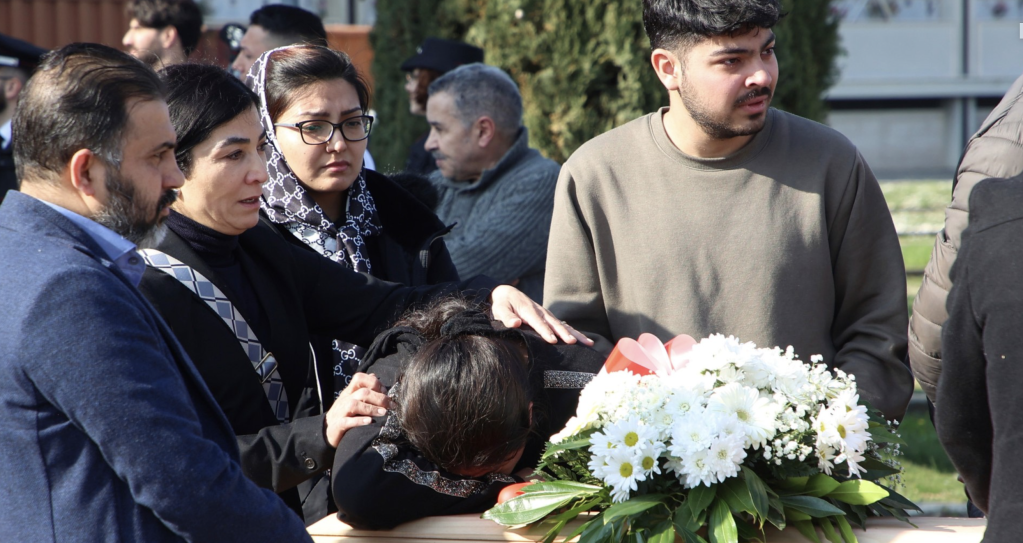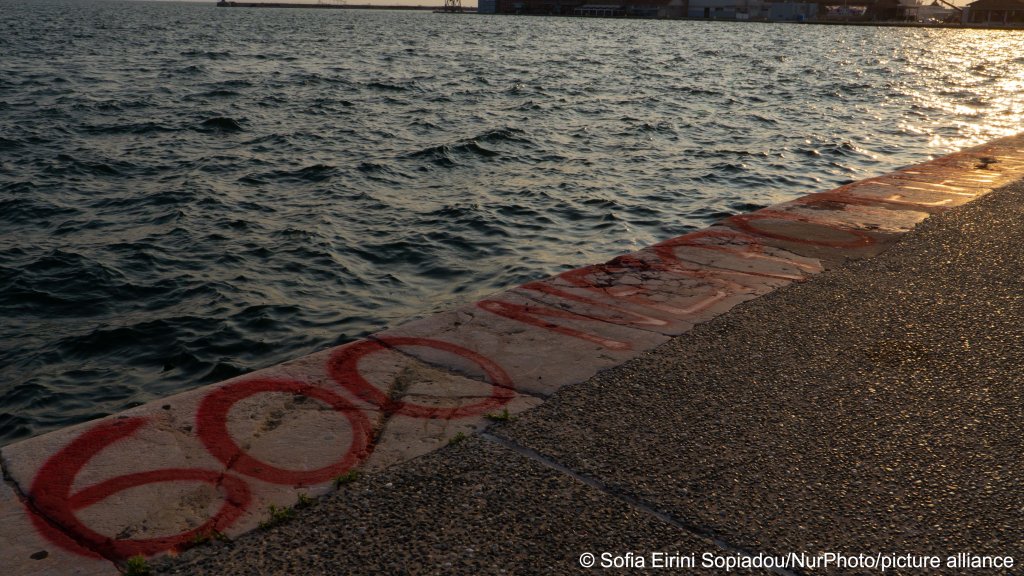Thousands of people perish in their attempt to enter Europe by braving the treacherous waters of the open sea in the Atlantic and the Mediterranean or by attempting to squeeze through heavily guarded border crossings. For the families they leave behind, the agony of not knowing is the worst, the ICRC told InfoMigrants.
A WhatsApp live location sent in the wee hours of August 17, 2022 was the only clue that Sanooja Saleem had to locate her husband, Samrin.
Samrin had made the journey from Sri Lanka to Europe and was lost somewhere in the deep forests along the border of Lithuania and Belarus. Speaking to Euronews, Sanooja said that before the live location tracker, Samrin had managed to call her.
He was in tears and desperate. Food and water had long run out and the battery on his phone would be next.
For four and a half months, Sanooja tried to find out what happened to him.

Thousands of people perish in their attempt to enter Europe by braving the treacherous waters of the open sea in the Atlantic and the Mediterranean or by attempting to squeeze through heavily guarded border crossings.
The families they leave behind bear the anguish of trying to find out what happened to them.
Agony of not knowing
Erika Chappuis, spokesperson for the International Committee of the Red Cross (ICRC), told InfoMigrants that for families in waiting, "The agony of not knowing is the worst."
And answers are extremely difficult to come by.
Some migrants, especially those who cross by sea, have a sense of where they want to go, but it is the tides and currents of the ocean that determine where they will eventually end up.
In cases like that, Chappuis explained that if a body washes up on shore, the remains will be turned over to the local authorities of the country of arrival. "For the family waiting back home, how would they even know where to begin searching?"
Also read: Looking for a missing loved one: How do I even begin to search and who can help?
Help after arrival
The ICRC, through its network of Red Cross and Red Crescent Societies, has operations in several migrant arrival areas. Here, after the migrants' essential needs are tended to, there are debriefings with the newly arrived. Phone calls are facilitated to their families and in parallel, interviews with survivors are conducted to get information about the other passengers who may have died during the journey or have been lost at sea.
The objective of these interviews, explained Chappuis, is to gather as much information about the dead or the missing as possible for a future search.
We have heard stories of mothers waiting for years. Whenever they hear a knock on the door or see a shadow of someone on the street, they are convinced it is their missing child.
The ICRC also has a Trace the Face website where people who may have lost relatives while migrating can check the online photo gallery to locate family members.
"Trace the Face also works for families traveling in groups and trying to locate one another. Say you have been separated from your family during the journey, you can upload your own photo so other family members can locate you," Chappuis said.
Tracing tools are extremely valuable to migrants.
"Families will go to anyone they can in their search for answers," said Chappuis.
"We have heard stories of mothers waiting for years. Whenever they hear a knock on the door or see a shadow of someone on the street, they are convinced it is their missing child. Imagine going through that for the rest of your life," she added.
Answers, in rare cases
In rare cases, there are answers.
In the shipwreck off the Greek coast of Pylos last June, more than 500 people mostly from Syria, Egypt, and Pakistan, are thought to have drowned. Only about 82 bodies have been recovered from what has been labeled as one of the deadliest migrant shipwrecks in the Mediterranean.

"The Pakistani government has a national registry and is working to match their data to the information the Greek authorities had to help identify the bodies and contact the families," said Chappuis.
Repatriating remains just as hard as identifying a body
However, even after a body is identified, the repatriation of remains is yet another hurdle.
Sanooja received a call from authorities that her husband’s body had been recovered from a river months before.
The debt the couple incurred for Samrin’s journey to Europe made it impossible for Soonja to physically identify his body or cover the cost of repatriating his remains. Additionally, securing the necessary documents for a visa to travel to Europe would come at a high cost, without a guarantee of being approved.
"One day I would like to come and visit him," Sanooja said.
According to Euronews, a Lithuanian Red Cross Restoring Family Links coordinator confirmed that several dead migrants -- including children -- have been buried in Lithuania at the expense of the state because relatives could neither come nor collect their bodies.
If you are looking for a missing loved one, relative, or friend, here is some information that may help you with your search:
